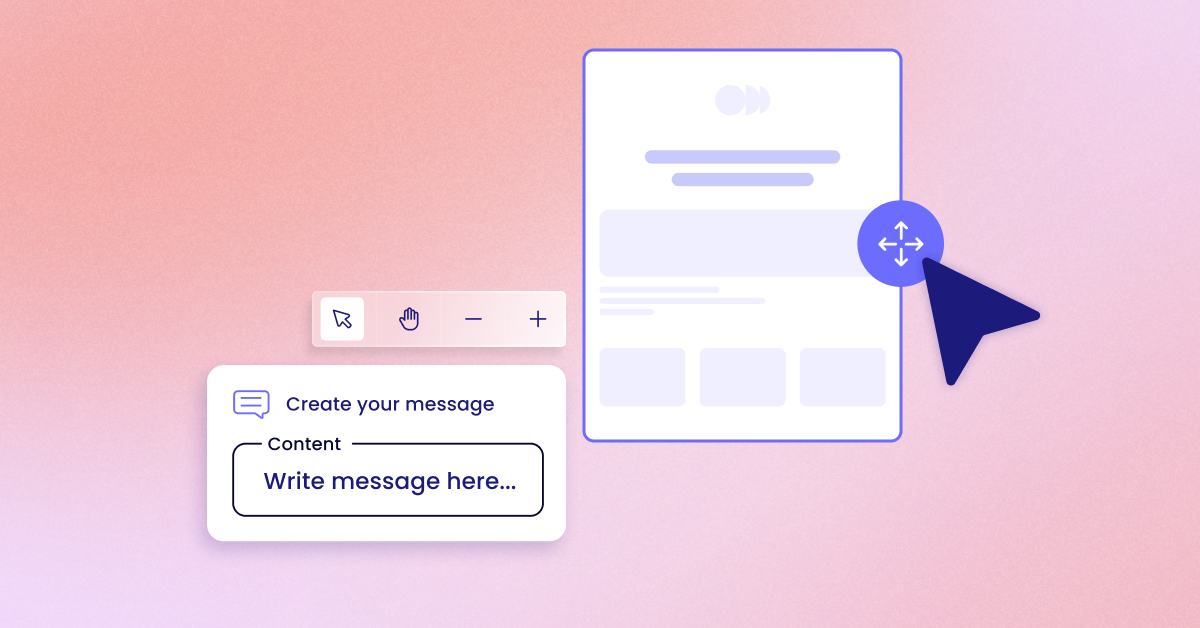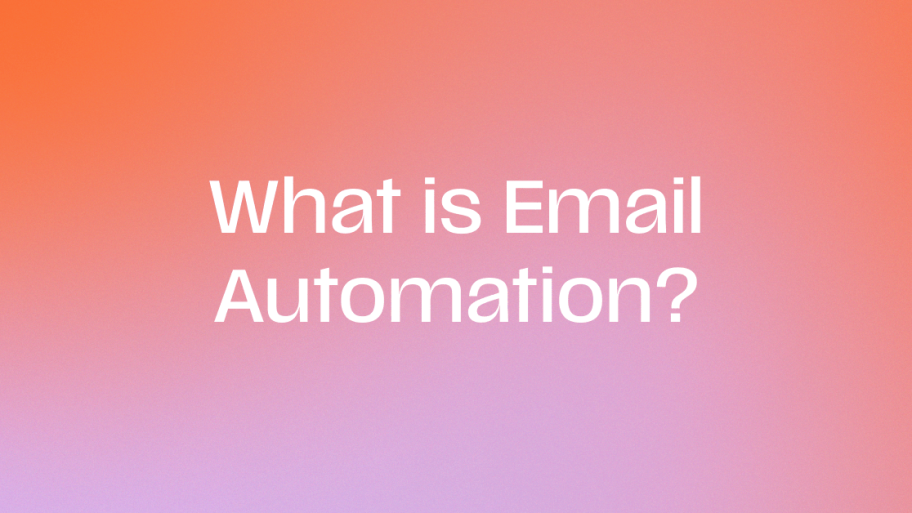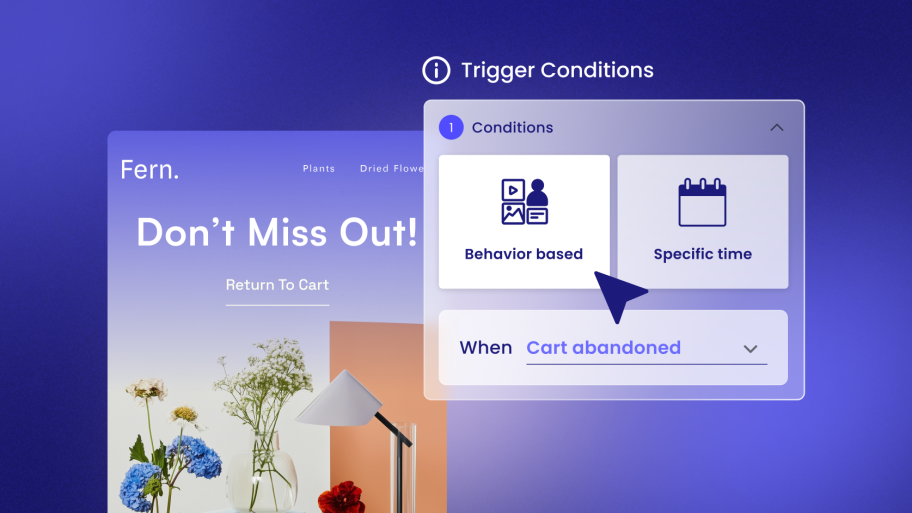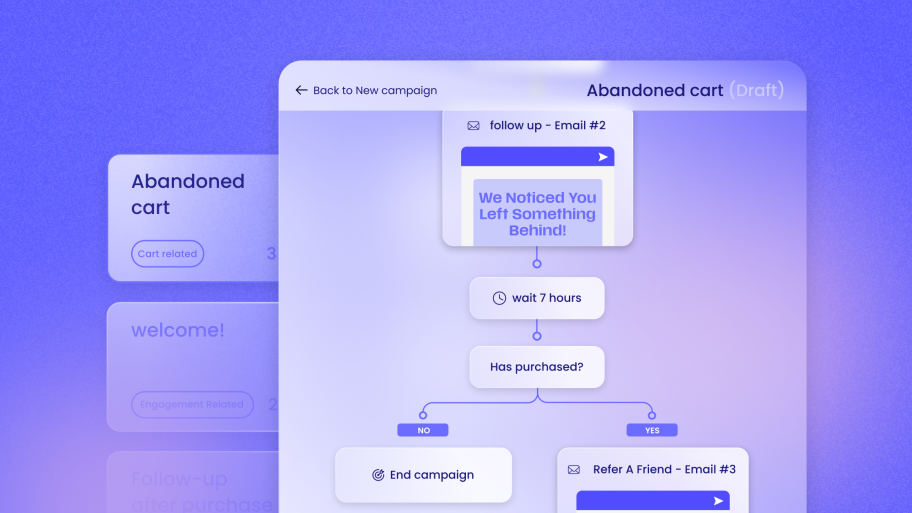For anyone serious about digital marketing, choosing the right AI platform is now a critical business decision. This guide offers an in-depth examination of the seven top AI email marketing platforms for 2025, enabling you to choose the ideal tool to enhance your strategy and surpass the competition.
What is AI Email Marketing, Really?
Before we start comparing platforms, it’s essential to cut through the marketing buzz and understand what “AI email marketing” actually means in a practical sense. It isn’t about handing over your brand voice to a robot.
Instead, it’s about leveraging intelligent systems to augment your own expertise, automate complex tasks, and deliver a level of personalization that would be impossible to achieve manually. It’s like having a dedicated data scientist and a marketing strategist on your team, working 24/7 to optimize your every move.
Beyond the Hype: Practical AI Applications
In day-to-day use, AI manifests as a set of powerful features that streamline your workflow and boost your campaign effectiveness. These applications turn raw data into intelligent action.
Here are the most impactful ways AI is being used today:
- Predictive Personalization: This is one of the most powerful AI applications. Algorithms analyze a user’s complete history—past purchases, Browse behavior, content views, and email interactions—to predict what they will want to see next. This allows you to automatically populate emails with tailored product recommendations, relevant blog posts, or personalized course suggestions, making each email feel uniquely curated for the recipient.
- Smart and Dynamic Segmentation: Manual list management is inefficient and prone to errors. AI automates this process by creating dynamic segments that users move in and out of based on their real-time behavior. For example, a customer could be automatically added to a “High-Value Customer” segment after their third purchase, or moved to a “Lapsing Interest” segment if they haven’t engaged in 90 days, triggering a specific re-engagement campaign.
- Send Time Optimization (STO): When is the best time to send an email? STO answers this question on an individual level. The AI tracks the historical open times for each unique subscriber and ensures your email arrives in their inbox at the precise moment they are most likely to engage with it. This simple-sounding feature can lead to a significant lift in open rates.
- Subject Line and Content Generation: Overcoming writer’s block is a common challenge. AI tools can generate dozens of compelling subject line variations in seconds. More advanced platforms can even help you draft email copy or adjust the tone of your message—for instance, making it more urgent, more professional, or more empathetic—all while providing a solid creative starting point for you to refine.
- Intelligent Automation Workflows: AI takes standard marketing automation to the next level. It can trigger complex email sequences based on a combination of subtle user behaviors. This allows for incredibly nuanced and timely interactions that feel less like automated marketing and more like a helpful, one-on-one conversation.
Why You Should Care: The Business Impact
Adopting an AI-powered email strategy is about more than just keeping up with the latest trends; it’s about driving tangible business results. When you consistently deliver relevant content at the perfect moment, the positive effects cascade across your key metrics. Businesses that effectively leverage AI-powered personalization often report a 10-15% uplift in revenue and significantly higher customer engagement.
Furthermore, these tools have a profound impact on Customer Lifetime Value (LTV). By creating better experiences and reducing churn, AI helps you build stronger, longer-lasting relationships with your audience. Ultimately, it handles the tedious, data-heavy tasks, freeing up your team’s valuable time to focus on high-level strategy, creative development, and the human side of building your brand.
How to Choose the Right AI Email Marketing Platform
With nearly every platform on the market now claiming to have AI capabilities, your job is to look under the hood and assess the real value. As a web professional who helps clients navigate these choices, I recommend a strategic framework for evaluation that goes beyond a simple feature list.
A Strategic Framework for Evaluation
Focus on how a platform will integrate into your workflow and contribute to your specific goals. Here are the key areas to investigate.
Assessing the Core AI Engine
First, determine the depth of the AI integration. Is artificial intelligence a core part of the platform’s architecture, or is it a single, tacked-on feature? A deeply integrated AI will influence everything from segmentation to analytics.
Also, consider how much control the platform gives you. Is the AI a “black box” that makes decisions without explanation, or can you adjust its parameters and guide its logic to better align with your brand’s strategy? The best platforms strike a balance between powerful automation and user control.
The User Experience & Accessibility
The most advanced AI in the world is useless if your team can’t figure out how to use it. An intuitive, user-friendly interface is absolutely essential, especially for non-technical marketers. The platform should make its sophisticated features feel accessible and easy to implement. A clunky or confusing UI will create a bottleneck and prevent you from taking full advantage of the tool’s power.
The Critical Role of Integrations
This is arguably the most important factor. An AI is only as good as the data it can access. A platform’s ability to seamlessly connect with your website, e-commerce store (like WooCommerce), CRM, and other marketing tools is paramount. Poor integrations lead to data lag, broken workflows, and an incomplete picture of your customer. This compromises the AI’s ability to make accurate, timely decisions. For this reason, a WordPress-native solution offers a decisive advantage for businesses built on that platform, as it guarantees the cleanest, most immediate data feed possible.
Reporting & Actionable Insights
A strong AI platform should do more than just execute tasks; it should help you learn and improve. The analytics dashboard should provide clear, actionable insights. It’s not enough to see that an email got a 30% open rate. The platform should help you understand why. Did the send-time optimization work? Did a specific product recommendation lead to a sale? Look for clear revenue attribution and reporting that connects email activity to tangible business outcomes.
Evaluating Pricing Models for AI Features
Finally, scrutinize the pricing structure. Are the powerful AI features you need included in the standard plans, or are they locked behind an expensive “Enterprise” tier or sold as costly add-ons? Some platforms may even use a credit-based system for AI-generated content. Look for a transparent pricing model that allows you to scale your usage as your business grows without facing unexpected costs.
The 7 Best AI Email Marketing Platforms for 2025
With that framework in mind, let’s explore the top platforms that are leading the charge in AI-powered email marketing.
1. Send by Elementor
Send by Elementor is a complete marketing and communication toolkit engineered to work seamlessly within the WordPress dashboard. Its unique power comes from being truly WordPress-native. While other platforms must rely on third-party connectors or APIs to access website data, Send has a direct, unfiltered line. This architecture is the foundation of its intelligent, practical, and highly effective approach to automation.
The Data Advantage of Native Integration
Effective AI requires a constant stream of clean, real-time data. Send by Elementor’s native integration provides this by default. It instantly knows when a customer adds a product to their cart in WooCommerce, when a user fills out a specific Elementor form, or how many times someone has visited a key landing page. There is no data lag and no risk of information loss through a faulty API. This ensures that every automated action is triggered by the most accurate and immediate user behavior, making your marketing incredibly relevant and timely.
Practical AI Through Seamless Automation
Send by Elementor excels at leveraging its data advantage to create practical, automated workflows that drive results. Its strength lies in making sophisticated journeys easy to build.
Consider this real-world example:
- A user on your WooCommerce store browses the “Running Shoes” category twice in one week but doesn’t make a purchase.
- Send’s automation can automatically tag this user with an “Interested in Running” tag.
- The system can then wait 24 hours and, if no purchase has been made, trigger a beautifully designed email showcasing your top-rated running shoes, perhaps with a helpful guide on “How to Choose the Right Shoe.”
This entire workflow is managed within WordPress, creating a personalized experience that directly addresses user interest and boosts the likelihood of a conversion.
A Unified Toolkit for Intelligent Communication
Send by Elementor consolidates Email and SMS marketing into one cohesive platform. This allows you to build smarter, multi-channel campaigns from a single interface. For instance, an abandoned cart sequence can start with an email reminder. If there’s no response after 24 hours, the system can automatically send a follow-up SMS with a small discount code to provide that final nudge. Managing intelligent, cross-channel communication from a single place is a significant workflow advantage.
Empowering Creators to Deliver AI-Driven Results
This platform is also uniquely positioned to empower web creators and agencies. It gives them a powerful, integrated tool to offer ongoing, performance-based marketing services to their clients. Instead of just building a website and handing it off, they can now provide sophisticated email and SMS automation that drives demonstrable ROI. This fosters long-term client relationships built on a foundation of measurable growth and success.
2. Mailchimp
Mailchimp is a prominent platform in the email marketing space and has integrated various AI tools to enhance its core product. It offers a “Content Optimizer,” which analyzes email campaigns and provides data-backed suggestions for improving copy, imagery, and layout. It also uses AI for send-time optimization and to provide personalized product recommendations for e-commerce stores. Its approachable interface makes it a popular starting point for businesses venturing into AI-powered marketing.
3. HubSpot
HubSpot’s AI tools, often branded under “Marketing Hub” and “ChatSpot.ai,” are deeply embedded within its comprehensive CRM platform. This allows its AI to draw from a rich well of customer data, including sales calls, support tickets, and website interactions. Its features assist with A/B test optimization, email content creation, and workflow automation. It is a robust solution for businesses that are already invested in or seeking an all-encompassing CRM and marketing software ecosystem.
4. Constant Contact
Constant Contact is a well-established service that has integrated AI capabilities to streamline email creation for small businesses. A key feature is its AI-powered content generator, which can help users quickly draft email copy, headlines, and subject lines when they are short on time or inspiration. The platform’s focus remains on simplicity and providing a straightforward toolset for users who need to create and send effective marketing campaigns without a steep learning curve.
5. GetResponse
GetResponse offers an all-in-one marketing platform that leverages AI across its suite of tools. For email marketing, it features an AI Email Generator that can create entire emails based on a few keywords and goals. It also provides AI-driven product recommendations to help e-commerce businesses increase sales. The platform is designed for marketers who want a broad range of functionalities, including landing pages and webinar tools, unified in a single system.
6. ActiveCampaign
ActiveCampaign is a platform centered on customer experience automation, and it uses AI to power its advanced personalization and segmentation capabilities. Its “Predictive Sending” feature is a standout, using machine learning to determine the optimal delivery time for each contact on a list. The platform is built for data-savvy marketers who want to create complex, dynamic automation workflows that respond precisely to user behavior across multiple touchpoints.
7. Brevo (formerly Sendinblue)
Brevo provides a suite of marketing and sales tools with AI features woven into its platform. Its email marketing solution utilizes AI for send-time optimization to help users maximize engagement on their campaigns. The platform’s intelligence also extends to channel selection, assisting marketers to determine whether an automated message would be more effective as an email or an SMS message based on user preferences and past behavior.
The Human Element: Mastering the Art of AI-Assisted Marketing
Investing in a powerful AI platform is only half the equation. The most successful marketers understand that technology is a tool to be wielded by a smart human strategist. True mastery comes from blending the efficiency of AI with the creativity, empathy, and strategic insight that only a person can provide.
Strategy First, Technology Second
It’s easy to get excited by shiny new AI features, but technology without a strategy is just a distraction. Before you even consider building an automation workflow, you must have a clear understanding of your goals, brand voice, and customer journey. What are you trying to achieve? Who are you talking to? What do you want them to feel and do? Answering these questions first will ensure that you are using AI as a tool to execute a well-defined plan, rather than letting the tool dictate your strategy.
From Data Points to Human Stories
AI is brilliant at identifying patterns and segmenting audiences. It can tell you who to talk to—for example, “customers who bought product X but not product Y.” That is incredibly valuable information. However, it’s your job to provide the why. You must utilize your human creativity and understanding of your customers’ needs to craft a compelling story, an empathetic message, or an irresistible offer that resonates with that specific segment. AI provides the targeting; you provide the heart.
Ethical Considerations and Transparency
With great power comes great responsibility. AI-driven personalization allows you to create incredibly relevant experiences, but there is a fine line between “helpful” and “creepy.” Always use the data you collect ethically and transparently. Avoid personalization tactics that might make a customer feel like their privacy is being invaded. For example, referencing the exact number of times they viewed a product might feel intrusive, whereas showing them related products feels helpful. Be transparent in your privacy policy about how you use data to create better experiences, and always ensure your practices build trust, rather than erode it.
Training Your Team for an AI-Powered Future
Successfully adopting an AI marketing platform requires a shift in team skills. The focus moves away from tedious manual tasks (like building static lists) and toward more strategic activities. The most valuable skills in an AI-powered marketing team are now:
- Strategic Thinking: The ability to map out customer journeys and define campaign goals.
- Data Interpretation: The skill to look at an analytics report and understand the story the data is telling.
- Creativity and Copywriting: The talent to craft compelling messages that AI can then deliver to the right person at the right time.
Invest in training your team not just on how to use the platform’s features, but on how to think like modern, data-informed marketers.
Wrapping Up: Making the Smart Choice
Choosing the right AI email marketing platform is a critical strategic decision that will shape your ability to connect with your audience and grow your business. The “best” platform is not the one with the longest feature list, but the one that is most accessible to your team, integrates most seamlessly into your existing workflow, and provides the clearest path to achieving your goals.
As you weigh your options, think carefully about your technological foundation. For the millions of businesses and creators whose digital presence is built on WordPress, a native and deeply integrated solution offers the most streamlined and powerful approach. By removing technical barriers and providing the cleanest possible data, it allows you to harness the power of AI and automation without the friction. This lets you focus your energy where it matters most: on the strategy, creativity, and human connection that truly make a brand special.




